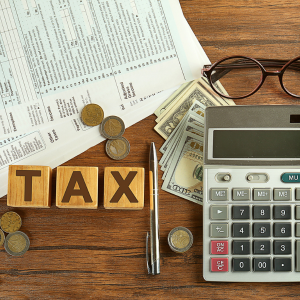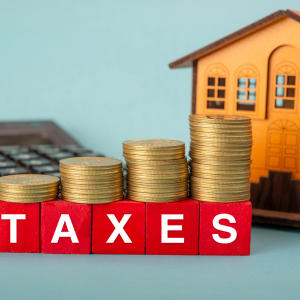
You must know the tax effects of selling your Richmond, VA, house. If you live near Richmond, you may have to pay state taxes and taxes on capital gains. These things can make or break your money. This book tells people who want to sell their house everything they need to know about VA and federal tax laws. This is meant to help you get a better grasp on these tough issues. When people know how much tax they must pay, they can choose homes in good communities. This is how they can get the most out of their money and make sure the bills are paid.
Understanding the Tax Implications of Selling a Home in Richmond
When you sell your home for cash in Richmond, VA, you have to deal with many tax problems. Also, it’s a big deal in the housing market. Another type of tax, the capital gains tax, may change how much money people who have sold their homes make. This is how the market in Richmond works. Knowing about these things can help you handle your money better. This part goes into more depth about the main things that might change how much tax you must pay. It also looks at how selling your home might affect your total income and tax returns when you use other ways to save money simultaneously.
Key Factors Influencing Tax Obligations
Capital gains taxes are a big deal in Richmond when you sell your home. Based on the difference between how much something sells for and how much it costs to buy. Changes like rebuilding can raise the base and lower the amount of income that is taxed, so it’s important to keep records. If you’ve lived in your main home for more than two years and paid off the mortgage, you may be able to get rid of up to $250,000 ($500,000 for couples). Finally, you won’t get a fine if you follow the IRS’s rules and correctly fill out forms like the 1099-S. You can get more money back and pay less tax if you know these things.
Impact on Financial Planning
You’ll have to pay capital gains tax when you sell your Richmond home. This will change everything you had planned. The amount of tax you must pay on a gain is found by adding up the fair market value, the adjusted basis, and the tax breaks you are given. This will help you plan. This will help you decide how to spend your money wisely if you want to buy more property or try something else.
It will also make a difference when you send in your tax return. You can sell your home at a certain time to get tax breaks. One way is to match wins and losses. People who are about to leave or whose lives are changing a lot should pay extra attention to how these changes will affect their income and savings for retirement. This is the reason why you should get help from a pro.
Talk to a tax expert or financial manager about your plan to ensure it fits your short- and long-term goals. You should know about any changes to the federal or Virginia tax rules so that your plan stays safe. If you plan it right, selling your Richmond home can save you money in the long run.
Virginia’s State Tax Laws and Home Sales

When selling a home in Richmond, Virginia, you must know a lot about state and federal tax rules to deal with them. Even though state tax laws control some parts of the deal, federal responsibilities are crucial for ensuring that tax strategies work well together. The following parts will explain how Virginia’s state tax affects the process of selling a home and contrast these effects with federal tax duties. This way, you’ll be sure to stay informed and ready for any tax outcome. Contact us for tailored guidance to maximize tax benefits and avoid surprises when selling your home.
How State Tax Affects the Home Sale Process
You need to take care of some important tax issues before you sell your Virginia home. These issues will have a direct effect on your money. The capital gains tax needs to be talked about. It’s the difference between how much you sold your house for and its “adjusted basis,” which is the price you paid for it plus any changes you made. When you make changes to your home, like updating or adding on, please keep track of them. This will help you raise your base and lower your taxable gain.
People in Virginia who own homes may also get tax breaks for capital gains. You must have made the house your main home at least twice in the last five years. You could leave out up to $250,000 in income if you are single. You could leave out up to $500,000 if you are married and file jointly. You must keep good records of where you live and any changes you make to get these tax breaks.
Lastly, don’t forget to pay your federal and state taxes on time. You might be able to get credits or deductions that lower your tax bill in Virginia because the state has its own tax rules. The government also charges a tax on high income. Keep up with changes to state rules and carefully plan when to sell your home to get the best tax break and the most money from the sale.
Comparing Virginia State Tax with Federal Obligations
You must pay all your federal and state taxes when you sell a house in Virginia. There is a capital gains tax in both systems, but the amounts, benefits, and ways to file can be different. You need to report the money you made from sales on IRS Form 1099-S, or else you could get fined. There may be extra tax breaks or credits in Virginia that let you pay no taxes. To get the most out of your tax return and make sure that it matches your federal return, you need to make sure that you record changes properly and prove that you live in the state.
Laws change constantly, and it’s important to know about them because they can affect your budget and how you handle capital gains. If you work with a tax pro who knows how to use both methods, you can make good plans, find good timing, and ensure that your tax goals are part of your overall financial goals. To get the best tax results, ensure your state and federal tax plans work together. This will help you save on taxes, sell your home for more money, and keep your money in the long run.
Property Taxes and Selling Your Home
When you sell your home in Richmond, Virginia, you must consider many tax issues. One of the most important ones is property tax. You will save a lot of money if you know how property taxes affect your real estate deal. Ensuring these taxes are paid properly ensures that the rules are followed and that the most tax breaks are obtained. You can also save a lot of money on taxes if you know how to do your property taxes right. We’ll discuss determining your property taxes when you sell a house and some smart ways to pay these taxes quickly.

Calculating Property Taxes When You Sell
When you sell your house fast for cash in Petersburg, VA, you must be very careful about paying your property taxes, because the buyer and seller will split these costs based on when the sale happens. People in your area decide how much the land is worth, which may not match the price it’s being sold for. Check out the most recent bill to get a better idea of how much you owe. Taking things away from the review can help you pay off your debt even more. Also, keep track of any changes you make to your home. They may raise their value, changing how you plan your taxes and determine your capital gains.
If tax laws or economic policies differ in your area, the rate used to measure your value may also change. Things you don’t want to do might have to be done. How much do you think things will cost after these changes? You can guess and set the right price for them now. A real estate tax expert can help you save the most money, ensure you don’t pay too much, and keep you from getting nasty surprises at the last minute that could hurt your finances.
Strategies to Manage Property Taxes Effectively
If you plan and learn about the tax breaks out there, you can make sure that you pay the least amount of property taxes when you sell your house. People over 65, soldiers, and disabled people in Virginia may be able to get tax help programs that lower their taxes. You may also pay less in taxes if you sell your home at the right time of the year. If your home’s value increases after you sell it, you might not have to pay more.
Find out the tax rules in your area and when your case will be heard so that you can pay off your debt. For the best chance of getting your review dropped, keep careful records of all the changes you make to your home. You should also keep these records to get the most tax breaks for capital gains.
Make sure you understand both state and local tax rules by working with a tax pro. They can also help you save money by teaching you how to get more from your benefits or spread them out over time. When a deal is over, people who bought something could also pay their taxes. You might be able to save money. You can pay your taxes faster and make more money from the sale if you do these things.
Leveraging Tax Benefits in Virginia Home Sales
Selling a house in Richmond, Virginia, can be hard to do because there are so many things to think about, especially when it comes to taxes. However, by taking advantage of certain tax breaks that are available to buyers, one can greatly improve one’s financial situation. This part talks about the different tax breaks that Virginia buyers can get and how smart planning can help them get the most out of those breaks while selling their home. Not only will knowing these details make the selling process easier, but they will also help you get the best possible price.
Exploring Available Tax Benefits for Sellers

People in Virginia can get a lot of tax breaks when they sell their homes. These breaks can make them very rich. The one that doesn’t tax capital gains is one of the most important. You can leave out up to $250,000 in gains if you are single and have lived in the house as your main home for at least two of the last five years. Married people can leave up to $5,000,000 in their wills. Get the most out of this benefit by carefully writing down any changes you make to the home’s base, such as rebuilding or fixing it up. The tax base and the assets that are taxed both go down because of these things.
In Virginia, you can also get tax breaks, help, and credits. There may be programs that can lower property taxes and make life a lot easier for people over 65 and soldiers. You can pay less in taxes and keep more of the money from the sale if you follow both federal rules and the perks that are only available in your state. They should talk to a tax expert who knows both ways, so they don’t miss out on good chances.
Last, you can pick the sale date to make these benefits even better. You can get even bigger tax cuts if you time the deal right. As an example, you could use cash gains to make up for stocks that you lost. If people in Virginia want to sell their homes quickly and for the most money, they need to know how the market, taxes, and programs all work together. Cash For Houses Girl can help make the process easier while ensuring they get the best return.
Maximizing Tax Advantages in the Home Sale
Maximizing tax advantages during a Virginia home sale requires planning and smart use of available provisions. Timing the sale with your broader financial plan can lower tax liability, while understanding the adjusted basis helps reduce capital gains taxes. Documenting improvements raises the basis and decreases taxable gains, allowing you to keep more proceeds. For investment properties, Section 1031 exchanges offer a way to defer capital gains taxes by reinvesting in like-kind properties.
Virginia also provides exemptions and credits, such as homestead relief programs, that can ease the tax burden. Working with a tax advisor ensures you take advantage of these opportunities, stay compliant with state and federal laws, and adjust strategies as regulations change. By combining timing, documentation, and expert guidance, sellers can maximize tax benefits and achieve a more profitable transaction.
Need to sell a home fast? Cash For Houses Girl buys houses as-is, saving you repair costs and time. Get a fair cash offer and stress-free experience. Contact us at (804) 376-8771 for a no-obligation offer today.
FAQs:
What are the tax implications of selling a home in Richmond, VA?
Selling a home in Richmond, VA, involves understanding potential capital gains taxes and specific state taxes. Virginia’s tax regulations can affect your financial outcome, requiring a grasp of both federal and state tax laws to ensure compliance and financial benefit.
How do capital gains taxes apply when selling a property in Virginia?
Capital gains tax is calculated based on the difference between the sale price of your house and its purchase price or “basis.” You may exclude up to $250,000 (or $500,000 for married couples) if the property was your primary residence for at least two of the last five years.
What documentation is required for tax reporting after selling a home?
The IRS requires detailed documentation of the property sale, including the use of forms like 1099-S for reporting sale proceeds. Accurate records of residency and property improvements are essential to minimize tax obligations.
What strategies can sellers use to manage tax implications effectively?
Sellers can manage tax implications by assessing fair market value, understanding basis adjustments, leveraging capital losses, and consulting tax advisors for strategic planning. Staying informed about tax legislation changes is also crucial.
Are there specific tax benefits available for home sellers in Virginia?
Sellers may benefit from capital gains tax exclusions and possibly credits or deductions offered under Virginia’s state tax laws. Eligibility for specific programs like tax relief for seniors and veterans can also influence tax obligations.
Helpful Richmond Blog Articles
- Understanding Richmond, VA, Vacant Property Regulations
- Sale Of Inherited House With Multiple Owners In Richmond, VA
- Sale Of A Home Amidst A Pending Lawsuit in Richmond, VA
- Free Home Appraisal Strategies In Richmond, VA
- Can An Executor Sell Property In Richmond, VA
- Selling Your House During Bankruptcy In Richmond, VA
- Title Issues At Real Estate Closings In Richmond, VA
- Selling A Water-damaged House In Richmond, VA
- How Much Does Home Staging Cost in Richmond, VA
- Should I Rent My House or Sell in Richmond, VA
- Tax Implications of Selling Home in Richmond, VA
- How to Sell an Investment Property in Richmond, VA
- Appraisal to Closing in Richmond, VA
- Safest and Worst Neighborhoods in Richmond, VA
- Richmond, VA, Neighborhood Map
- Richmond, VA, Property Tax Rate

